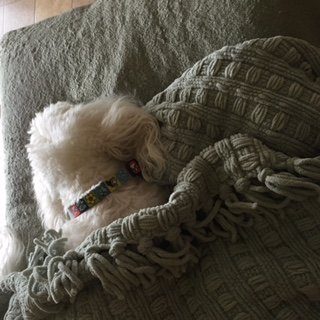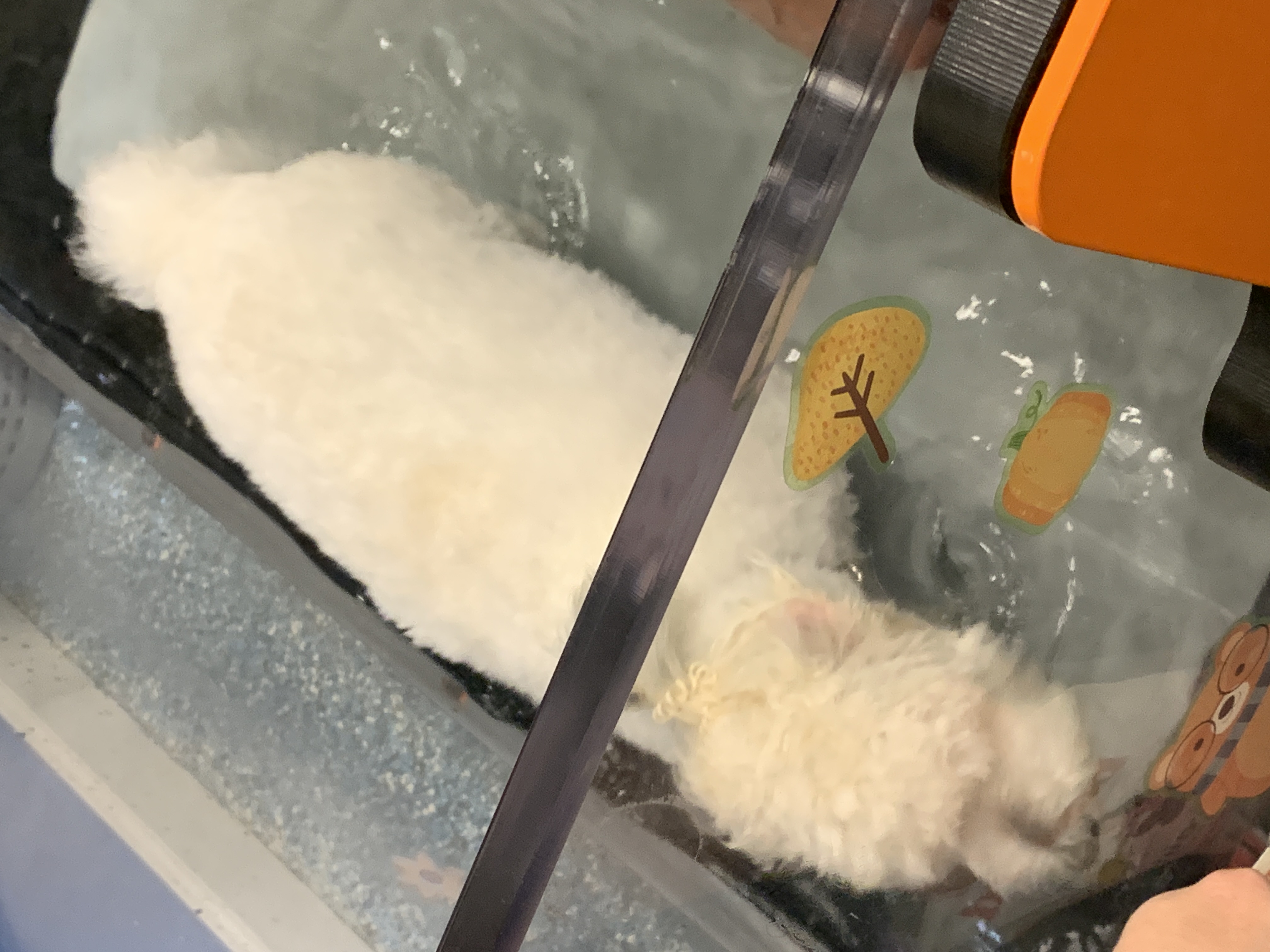What You Need to Know About
Senior Dog Health
Learn how to keep your older dog healthy and happy

Because dogs age so much faster than we do, senior dog health issues can seem to appear out of nowhere. One day you’re running after a cute little puppy and it seems like the next day you’re dealing with your dog’s arthritis or cataracts.
It seems like my dog, Luc, went from puppy to senior in the blink of an eye. He went from being an active, mischievous dog to a senior citizen who slept most of the day, couldn’t see or hear too well, and could no longer jump on furniture.
While the life expectancy for a small dog like the Coton de Tulear is longer than other larger breeds, you want to make sure that every single one of those years is filled with the highest quality of life possible.
The good news is that, just like with people, medical science has come so far that your older dog can have a high quality of life for much longer these days. There are treatments available for all kinds of age-related symptoms.
Caring for an older dog requires just a little more patience and observation on your part.

What can you do to ensure the best senior dog health?
While older pets are likely to have unwanted health conditions, there are plenty of ways to prevent and manage these common age-related problems.
- Make sure your dog goes to the vet once or twice a year. Prevention is the key to ensuring good health in their old age.
- Handle your dog frequently, looking for bumps, lumps, and any changes in the coat and skin.
- Pay attention to your dog’s ears, eyes, and mouth when you do your daily or weekly grooming. Early detection can prevent serious problems.
- Dental hygiene is especially important to the overall health of your dog's senior years. Don’t let this go.
- Monitor your dog’s appetite and thirst. Loss of appetite, weight loss, and severe thirst can be indicators of serious medical issues. Weight gain or obesity can lead to other common problems such as arthritis, certain cancers, or heart disease.
- Make changes in your dog’s environment if necessary. If your dog is arthritic you may want to change his bedding or provide stairs to help him get on the couch. Raising food and water bowls can also make your dog more comfortable.
- Keep older dogs on a regular schedule. Senior dogs get anxious when their schedule or environment changes drastically. Make changes slowly.
- Any sudden behavioral changes can be a sign of a medical condition. If your dog is acting out of character or has suddenly become aggressive, it can be a sign of pain from arthritis or a toothache.
It's important to visit your veterinarian when you notice physical changes, as early detection can make a difference to their lifespan and quality of life.
What should you look for?
Senior Dog Health Symptoms to Watch For:
- Lethargy
- Hyperactivity
- Insomnia
- Depression
- Anxiety
- Aggression
- Limping
- Joint pain or any signs of arthritis
- New lumps, bumps, scabs, redness, fleas or rashes
- Coughing, sneezing or wheezing
- Head shaking or scratching ears
- Panting, salivating, whining, or pacing
- Changes in appetite or thirst
- Broken or chipped teeth
- Dental issues, such as plaque on teeth near gums, red or swollen gums, bad breath, or bleeding teeth
- Squinting
- Cognitive decline
- Loss of hearing
- Loss of bladder control
- Sudden behavior changes
- Bloodshot or cloudy eyes
- Ear odor
Get Help for Your Aging Dog
 Lucy doing hydrotherapy
Lucy doing hydrotherapyOf course, you should contact your vet if your senior pup shows any of the above symptoms. But did you know that there are many treatment options for your senior pets?
When I took my Coton de Tulear, Lucy, to rehab for a back injury, I was referred to a local rehab center that's primarily for aging pets. They have various treatment modalities for pain and mobility, including laser therapy, acupuncture, chiropractic care, hydrotherapy, and Chinese herbs.
Alternative treatments are becoming more common, but you may have to travel a bit to find one near you if you don't live in a big city. Lucy and I travel about an hour to get to her rehab appointments, and when my previous Coton, Luc, had back issues due to aging, we drove several towns away to get acupuncture treatments. It's so worth the trip to get relief for your dog!
When it comes to other common health problems for elderly dogs, such as heart disease, kidney disease, cancer, vision loss, and joint issues, work with your vet to manage pain and mitigate further problems.






